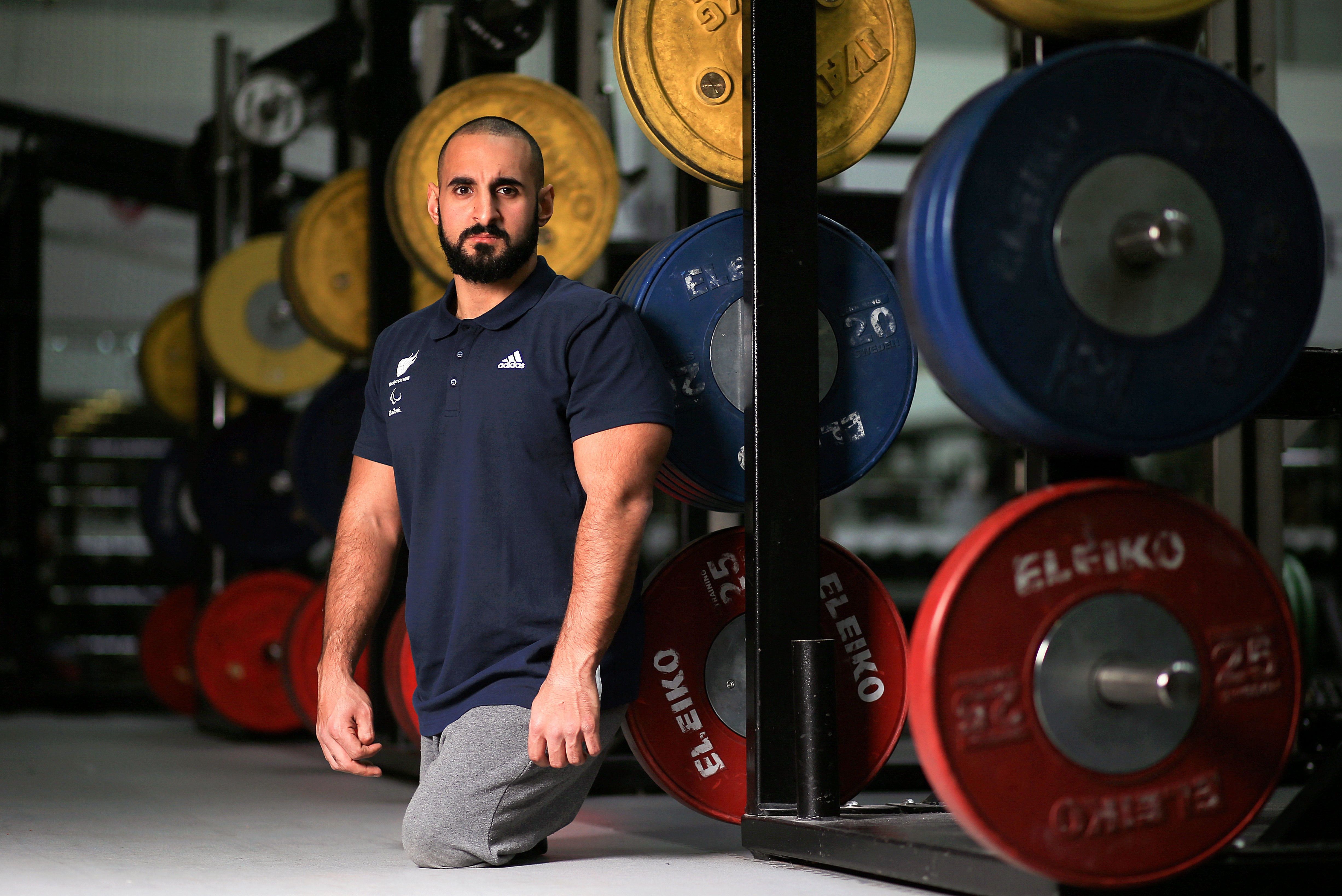Medals not on Ali Jawad’s mind this time as powerlifting star gets set for Tokyo
The 32-year-old Paralympic silver medallist was named in Great Britain’s five-person squad for Tokyo.

Your support helps us to tell the story
From reproductive rights to climate change to Big Tech, The Independent is on the ground when the story is developing. Whether it's investigating the financials of Elon Musk's pro-Trump PAC or producing our latest documentary, 'The A Word', which shines a light on the American women fighting for reproductive rights, we know how important it is to parse out the facts from the messaging.
At such a critical moment in US history, we need reporters on the ground. Your donation allows us to keep sending journalists to speak to both sides of the story.
The Independent is trusted by Americans across the entire political spectrum. And unlike many other quality news outlets, we choose not to lock Americans out of our reporting and analysis with paywalls. We believe quality journalism should be available to everyone, paid for by those who can afford it.
Your support makes all the difference.Powerlifting star Ali Jawad says avoiding embarrassment is the major goal at what is likely to be his final Paralympics after Crohn’s disease left him a “shadow” of the athlete who won silver at Rio 2016.
The 32-year-old mounted a stunning sporting comeback to scrape a place on the plane for this summer’s Games following a lengthy ongoing battle against the condition which causes parts of the digestive system to become inflamed.
He was diagnosed in 2009 and suffered a severe flare up after finishing second in the men’s 59kg category in Brazil five years ago, causing irreversible changes to his body and an 18-month period out of action.
The former world champion, who was born without legs, was on Thursday named in Great Britain’s five-person squad for Tokyo and admits persistent health issues have given him a fresh perspective on what remains of a stellar sporting career.
He told the PA news agency: “It’s not about medals this time for me. I think my medal is just getting there and I have proven to myself that I can take Crohn’s to its limits and overcome it.
“I peaked between 2014 and 2016, that was the best Ali and I didn’t really appreciate it as much as I should. I didn’t celebrate it as much as I should.
“Now, I’m a shadow of that person and I’m never going to get there again, so I should have actually appreciated what I was.
I guess, the job now for me is put in a performance that doesn't embarrass me.
“People shouldn’t expect me to be anywhere near a medal because I literally got the last spot to qualify. That’s the difference between Rio and now, it’s just a completely different body.
“I guess the job now for me is put in a performance that doesn’t embarrass me.
“It’s just a privilege to make another Games and I’m lucky that I’ve got the opportunity to bow out on my terms, and it wasn’t Crohn’s.”
Jawad would not have been involved in Tokyo had the event not been pushed back a year due the coronavirus pandemic.
Travelling to the Japanese capital will mark his fourth successive Paralympics following appearances in Beijing, London and Rio.
The Lebanon-born athlete expects it to be his last and is considering calling time on his career after next year’s Commonwealth Games in Birmingham.
He has already begun making plans for retirement, studying for a PhD in anti-doping in Paralympic sport in addition to working on a fitness app for people with impairments.
“Three years ago my Crohn’s was at a stage where nothing could be done for me,” said the two-time Commonwealth bronze medallist.
I will get through Tokyo and think about retiring next year, I think. I can change my mind, who knows?
“I took a path that was perceived to be quite risky at the time and just had to find a way to give me a chance and I guess I am lucky that I actually qualified because back then I don’t think anybody – even myself – thought I could make it.
“Crohn’s has taken its toll. The way I have had to live is not sustainable to be able to pull this off.
“My aim now is potentially to bow out at the Commonwealth Games next year in Birmingham because there is no other opportunity like that to retire at a home Games in a multi-sport event.
“I will get through Tokyo and think about retiring next year, I think. I can change my mind, who knows? If I am competitive I might carry on but if there’s no solution for my health going forward then it’s probably it.”